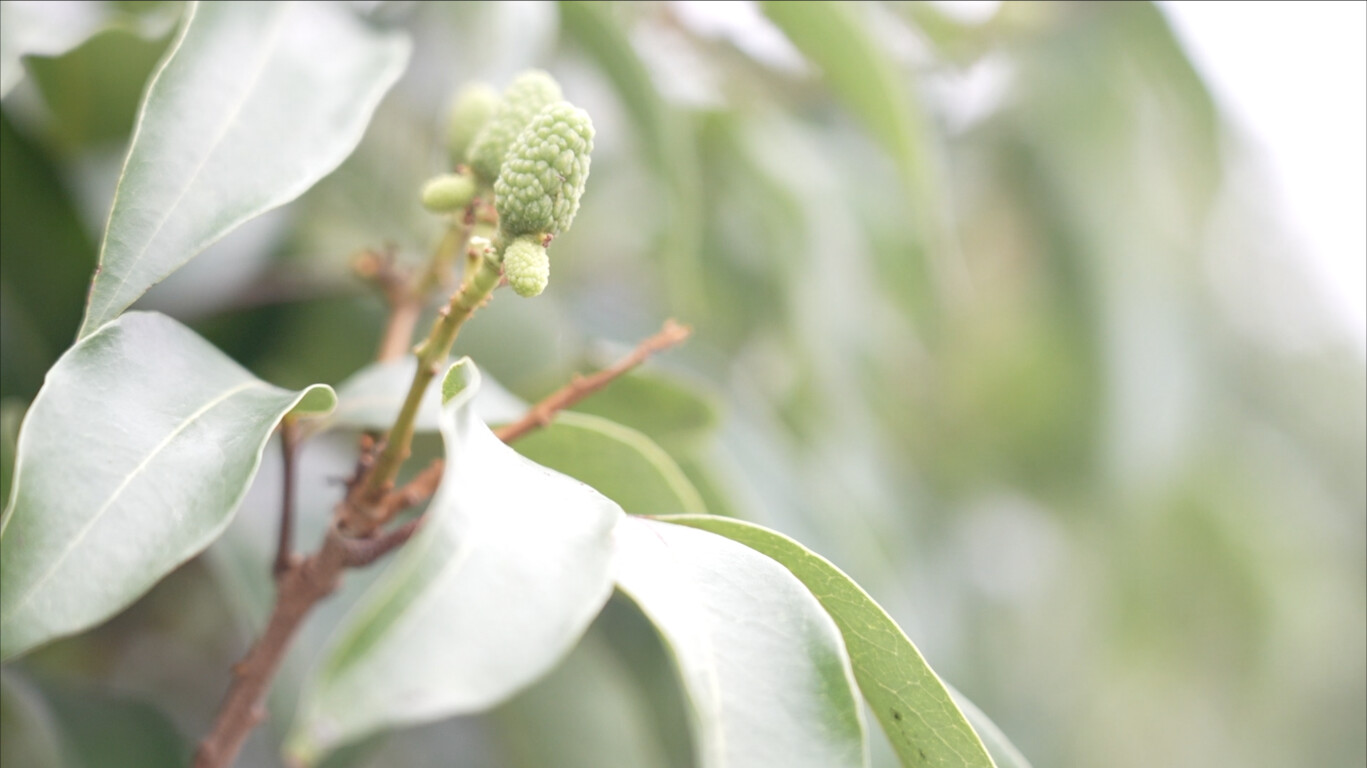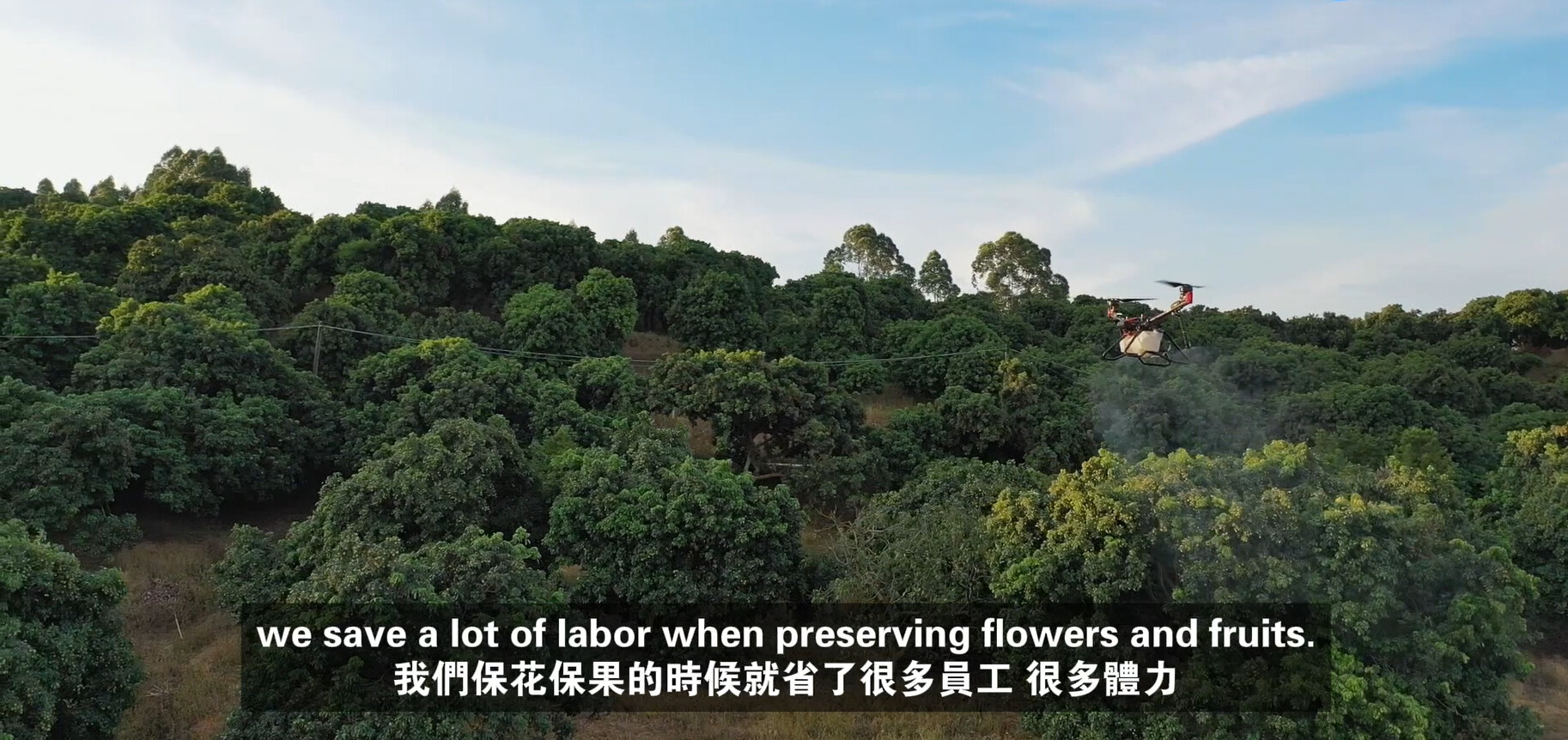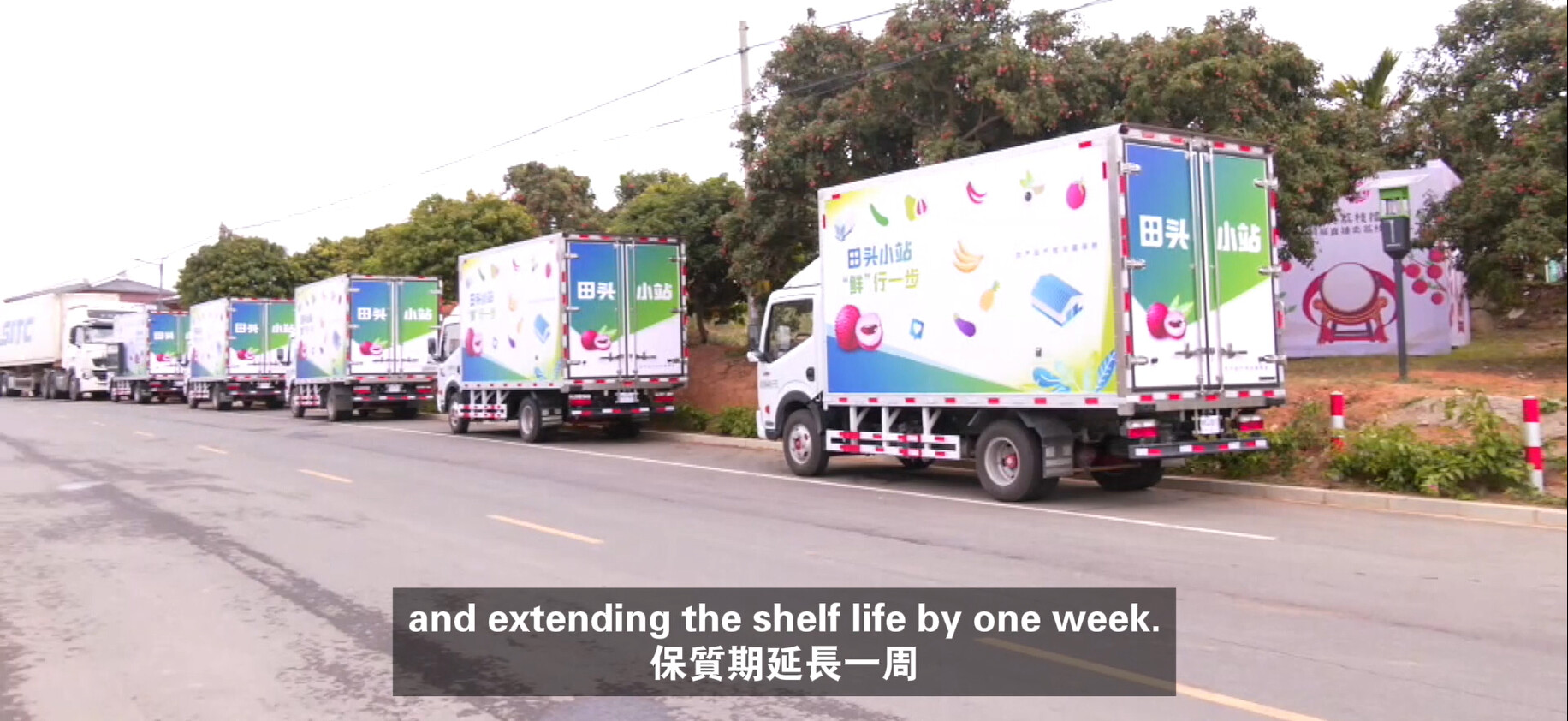In western Guangdong's Maoming, also known as the Hometown of Lychee, the 1.43 million mu of lychee trees have entered the flowering and fruit-setting stage. At the lychee orchards of Baiqiao Village, the trees are adorned with a riot of delicate blossoms and green lychee fruits emerge, sparking local farmers' anticipation for the upcoming harvest.

Modern farming techniques become the norm
He Jianhe, a local lychee planter with a planting area of 100 mu (about 6.67 hectares), is confident about his income this year. "My lychee trees bear fruit very well. My income this year is expected to increase by 10% to 20%."
He believes that one of the major contributors to the harvest of lychees is modern technology. His orchard has been equipped with IoT facilities such as meteorological monitoring stations, soil monitoring stations, real-time video surveillance, and intelligent insect traps.
These equipment are provided by the local agricultural and rural affairs bureau, which transmit various natural indicators and real-time monitoring images of lychee growth back to the large screen of the Lychee Big Data Command Center. Then, after analysis and assessment by technical experts, the information of key planting techniques will be sent to the mobile phones of 300,000 growers.
Up to now, 109 sets of IoT facilities have been installed in the main lychee orchards of the city, according to Wang Xiaohui, vice mayor of Maoming.

Preservation technology extends lychees' freshness for more than 30 days
For Lin Changzhen, the director of Gaozhou Genzi Baiqiao Agricultural Innovation Park, the advancements in cold chain preservation technology act as another boost for the sales of her lychees.
"The freshness of lychees picked from the tree starts to decrease immediately. In the past, fresh lychees suffered losses due to being piled up in the field and waiting for transportation. About 15 kilograms of lychees out of 50 kilograms would be lost." However, according to Lin, things have changed since the implementation of freezing stations.
According to statistics, Maoming has established a total of 295 freezing stations, introducing pre-cooling technology and nitrogen preservation methods. "Now we can put freshly-picked lychees quickly into cold storage within an hour after picking, which extends our lychees' shelf life by one week and helps us solve the preservation problem for the first kilometer," said Lin.
Additionally, Guangdong Xianrun Ecological Agricultural Science and Technology Co., Ltd. has launched a modified atmosphere mobile container for fresh-keeping. According to Wang Zhiqing, the general manager of the company, this device mainly inhibits the respiration of lychees by controlling the gas composition of the air. "Our device can keep lychees super fresh for seven days, maintain their freshness for 15 days, and extend their shelf life to about 30 days. It can even be used in the China-Europe freight trains, with which we have been discussing cooperation."

Ready to offer a taste for global consumers
With a history of more than 2,300 years of lychee cultivation, Maoming boasts the world's largest lychee planting base and is also an important exporter of lychees. So far, Maoming lychees have been exported to countries and regions such as the United Arab Emirates, Malaysia, Indonesia, the Philippines, Singapore, the Netherlands, and Canada.
He Jianhe said that his lychees used to be exported to Southeast Asia, and now buyers have already been contacted about exports this year. "The relevant departments have been actively helping us align with export standards and improve planting conditions based on foreign demand. This year, our lychees are expected to be exported to Japan, and the expected export volume will be higher than before."
Guangdong Xianrun Ecological Agricultural Science and Technology Co., Ltd. is also aiming for overseas markets. "We exported over 3,000 tons last year and our main markets are currently in Europe and the United States. Every country has different phytosanitary standards for plants. We will meet quarantine standards before lychees can be sold. This year, our goal is to maintain the same export volume as the previous year," introduced Wang Zhiqing.
Reporter | Abby
Video | Qin Shaolong
Poster | Mia
Editor | Xie Miaofeng, Nan, Ou Xiaoming, James
















